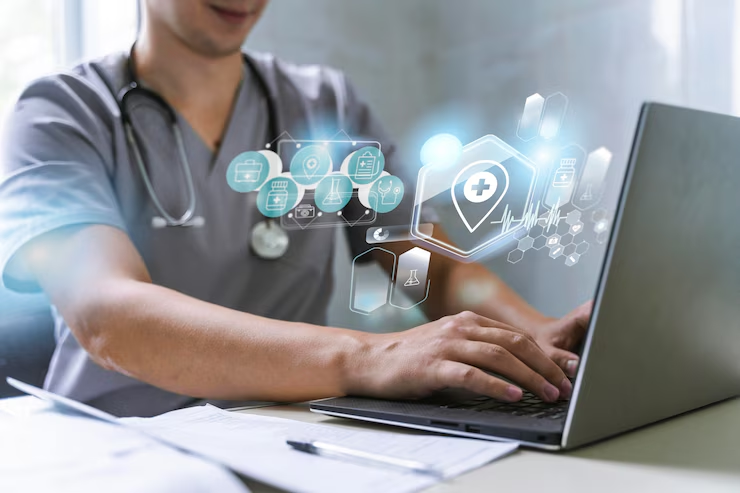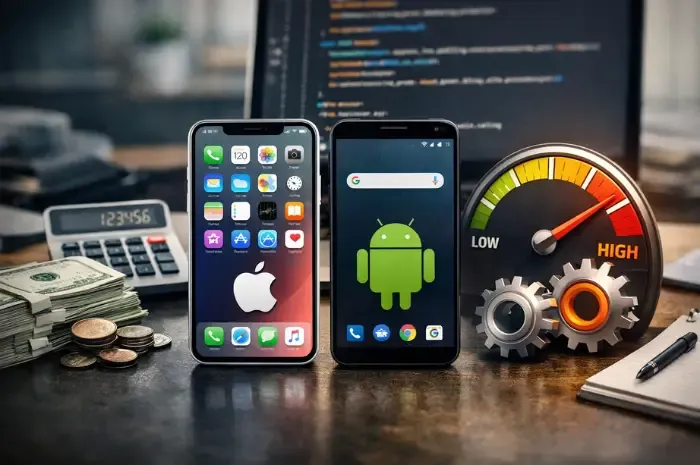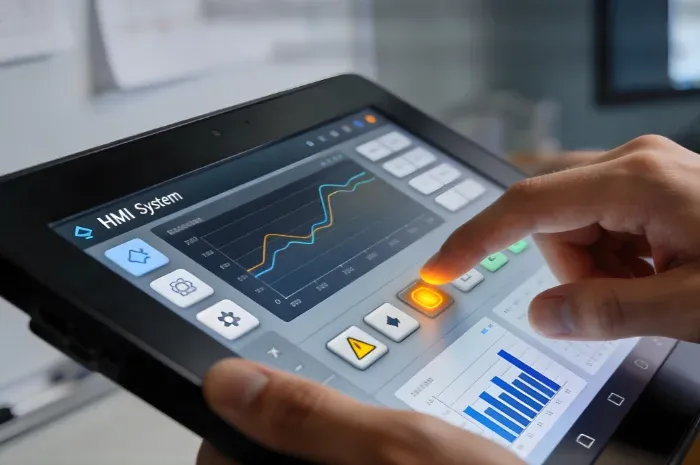The healthcare industry is getting smarter by utilizing the power of technology to serve better healthcare services to everyone. Data science in medical field is one of those technologies upon which it relies the most as the industry generates a vast amount of data each day. This big data is extremely helpful in several ways.

The healthcare industry is getting smarter by utilizing the power of technology to serve better healthcare services to everyone. Data science in medical field is one of those technologies upon which it relies the most as the industry generates a vast amount of data each day. This big data is extremely helpful in several ways.
For instance, health data science helps in understanding real-world health issues through big data and gives valuable insights to provide on-time and appropriate treatments to patients. The risk of treatment failure can also be minimized with the use of data science in healthcare industry.
Its true power was realized during the time of the pandemic where from predicting the covid-19 trends and hotspots, discovering the most appropriate vaccines, and categorizing patients according to their vulnerability score; data science in healthcare made it all possible.
In this blog, we will learn about more such data science use cases in healthcare and understand how it is revolutionizing this sector.
First Understand, Why Healthcare Industry Needs Data Science?
To Minimize the Risk of Medical Errors
The industry has a direct impact on human life. Any wrong medical prescription or failure to diagnose a serious disease on time can lead to complex health issues in patients or even death in some cases.
Every year worldwide, millions of patients either suffer dire consequences or die due to medical errors. Misdiagnosis, wrong-site surgery, adverse drug reactions, and delay in diagnosis are some of the common reasons behind those errors.
Data science in medical can reduce these errors by providing insights that lead to accurate diagnosis, timely prescription of treatment, identifying the right treatments for patients, or analyzing the side effects of drugs. All the insights are extracted from EHR (electronic health record) and EMR (electronic medical record).
To Give Personalized Treatments
Assessing patients’ symptoms based on traditional methods is not foolproof today. You never know that even a common symptom like a headache can be due to a migraine or something more serious.
Without proper data and the right technology, doctors cannot even recommend the right treatment. Maintaining records of hundreds of patients every day and monitoring their health conditions 24*7 is another challenge that the healthcare industry faces.
With data science in healthcare industry, these challenges can be dealt with allowing doctors to provide better and personalized treatments to patients to minimize the health risk.
This cannot be done without having the right dataset that includes critical data about patients’ health history, claims data, health survey records, clinical trial registries, etc. There are quintillions of such data every day that needs to be processed.
Data science in medical field helps analyse this vast set of data through mathematical algorithms. Predictive models leveraging machine learning can be used to understand what we can do with health data and how it supports medical research.
To Cut the Healthcare Expenses
Data science is helping hospitals and insurance providers to cut down their costs on healthcare services patients can now save their hard-earned money on treatments.
Technological solutions like EHRs (Electronic Health Record) (Electronic Health Record), remote patient health monitoring systems help in determining the right treatments for patients. Thus, saving patients money that otherwise gets wasted in trial treatments.
Medical staff can now analyse the accurate number of patients to be accommodated in the hospitals thus reducing their admissions rate whilst providing quality care. Data science in healthcare also helped insurance providers to identify fraud claims by identifying abnormalities in data.
There are many more reasons to use data science in healthcare industry. Now let us see some of the key areas where data science is of immense help.
6 Important Applications of Data Science in the Healthcare Industry
1. Medical Imaging Analysis
MRI, CT scans, and X-rays are some of the common medical imaging procedures that doctors suggest for diagnosis purposes. Accuracy matters here the most as incorrect identification or missing any abnormalities affect the treatment phase and can put patients’ lives at risk.
Data science in medical field has emerged as a valuable ally of medical professionals in conducting imaging diagnosis procedures with efficiency and accuracy. Here, deep learning plays a crucial role in various medical imaging processes such as classification, segmentation, monitoring, and predicting the response to treatment. With image processing techniques, systems can now even detect microscopic deformities in the patient’s body that otherwise are hard to notice with the naked eye.
2. Study of Genomes
Genomics study is very crucial in the medical field. It helps identify the irregularities in DNAs, predicts the possibility of any disease, analyses the drug response on DNA, find the correlation between multiple diseases and their symptoms, etc.
However, genome study is time taking and redundant due to the presence of millions of DNA cells in our bodies. But data science in healthcare industry techniques and tools such as MapReduce, Bioconductor, and SQL make genome research easier than before. The result is coordinated information on hereditary qualities, gene mutation, genetic risk prediction, patients’ responses to a particular medication, etc. Medical researchers are the ones to be benefited from this valuable data on genes.
3. Predictive Analytics and Prevention of Diseases
ML has helped the healthcare industry the most through predictive models to foresee any event. It could be disease outbreaks, growing infection rates among patients, increase in medicine demand so that pharmaceutical companies and hospitals are well prepared for the future.
4. Discovering the Right Drugs
Finding the right drug consumes a lot of time, effort, and money. It is a hit-and-trial method most of the time because of the unavailability of precise data. Data science in healthcare industry facilitates researchers with accurate data saving their time on R&D and avoiding dead ends while discovering the right medicine to cure a particular disease. It also speeds up the process of finding the right candidates for clinical trials, predicting potential side effects, and thus reducing the cost of drug development.
5. Healthcare Management
The areas of data science application are not limited to managing patients in the healthcare industry. From managing medical staff, identifying issues in hospital operations, analyzing the efficiency of medical services, cutting down the hospital budget, and managing the schedules of doctors and patients’ supervision; data science in medical field can be effectively applied in healthcare management.
6. Virtual Medical Assistance
Getting medical assistance on time is one of the issues patients face usually. They wait in long queues to consult a doctor in the time of emergencies or do not prefer visiting doctors to treat minor health conditions.
What if you can get a prescription without even visiting the doctor for real? It would save both your time and the doctor’s time so that they can attend to several patients in a day.
Virtual platforms, chatbots, and applications have paved a way for this and connecting doctors and patients directly without them making them wait longer. Natural language processing and other machine learning techniques are of major help in this regard using which data scientist in medical field can design platforms that provide 24*7 assistance to patients based on the inputs they enter. It also eases the follow-ups of patients.
6 Practical Use Cases of Data Science in Healthcare
Use Case 1: AI in Identifying Cancer Cells
A leading pharmaceutical company has cut its analysis time on molecular imaging by 30 percent with the use of AI in its systems. They trained an AI system to identify PD-L1 (a protein found in cancer cells) from patients’ samples. As a result, they can take better decisions regarding the necessary treatment to offer such patients.
Use Case 2: Apple Smartwatch Tracking Heart Irregularity
The apple smartwatch series is the best example of data science in healthcare usecase in health monitoring besides tracking fitness scores for healthy individuals. With the growth in technology, Apple introduced more useful features and apps to develop real healthcare literacy among users.
For example, the Apple Watch uses machine learning and built-in motion sensors to identify minute changes in muscle movement, irregularity in heartbeats, blood oxygen level, fall detection, etc. This important medical data can also be shared with doctors in real-time making it a useful wearable for heart patients. They can even add their symptoms to the application to get an accurate recommendation from doctors.
Another company that is focusing on wearable digital health sensors is AbbVie. Along with MC10, they have developed a BioStamp nPoint system to collect physiological data on multiple sclerosis patients and use that data in clinical trials.
Use Case 3: Predicting High-Risk Areas for Faster Vaccine Trial
Johnson & Johnson used data science technologies to develop an effective covid vaccine. With the support of data scientist in medical field at Janssen Research & Development, they first implemented artificial intelligence and machine learning to improve their understanding of this unknown virus.
They also used a Covid analytics platform called DELPHI to track patients’ behaviour, high-transmission areas, and more. The study helped them identify suitable areas to start clinical trials of the vaccine.
Use Case 4: An AI-Powered App for Mental Health Support
Woebot is a perfect data science in healthcare use case in the healthcare industry. It is an AI-powered software designed to offer personalized mental health therapy treatments to people in times of need. The app has an intelligent mood-tracking feature to learn about users’ emotions in real time. In a tough time like dealing with grief, the app supports the user by providing tips to cope with depression caused due to hardships.
Use Case 5: Tracking Patients Remotely
Tracking patients’ health every now and then is not possible for doctors, nurses, and caretakers. Spending most of their time in ensuring whether patients are taking medicine on time, or their symptoms are controllable, requires more time and care.
With data science in medical field technologies, hospitals are installing a remote patient tracking system and integrating the same with existing software to take diligent care of existing ones.
A real-life example of a remote patient monitoring system is a glucometer that assists diabetic patients in measuring their glucose levels without the need for doctors.
Use Case 6: Data Science in Contact-Tracing
Contact tracing was the only way to know how many people have been in contact with the infected person during the pandemic. But, how to implement it was the real question. The National Informatics Centre utilized data science in healthcare industry technology to develop a contact tracing application- Aarogya Setu to mitigate covid risk and recognize infected persons irrespective of their locations.
The app proved instrumental in marking high-risk areas, streamlining the vaccination procedure, and identifying people who should undergo the RT-PCR tests. This level of covid-19 management was possible with data science in medical.
Similarly, an AI-based platform that works on data science in healthcare techniques helped in determining metabolic markers to diagnose the Zika virus in Brazil. Early detection of these autoimmune diseases prevented the worsening conditions of patients.
Conclusion
Data science in healthcare has the most promising future in the healthcare industry and the above data science use cases in healthcare are the proof. From collecting, managing, and storing critical information about patients and diseases both known and unknown healthcare industry can now produce better treatments. It has also addressed the most pressing problems of this sector and enhanced its efficiency.
FAQs
Q1: What is the role of a data scientist in medical field within healthcare?
A data scientist in medical field analyzes complex healthcare data to provide actionable insights that improve patient outcomes, optimize treatments, and streamline healthcare operations.
Q2: How is data science in healthcare improving patient care?
By leveraging predictive analytics and personalized data, data science in healthcare allows practitioners to deliver timely, precise treatments and prevent medical errors.
Q3: Can data science in medical help reduce healthcare costs?
Yes, it helps by optimizing resource allocation, reducing fraud, and enhancing treatment accuracy, thus cutting unnecessary expenses in the healthcare industry.
Q4: How is data science used in healthcare to manage pandemics?
It helps track disease spread, identify hotspots, predict vaccine efficacy, and manage contact tracing efficiently to control outbreaks effectively.
Q5: What tools do data scientists use in the medical field?
They use machine learning algorithms, AI platforms, and big data tools like MapReduce, SQL, and Bioconductor to analyze and interpret healthcare data.







